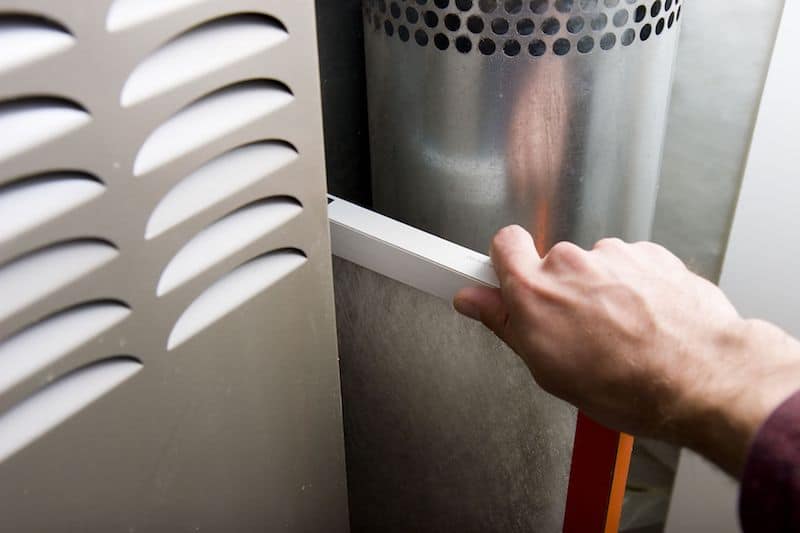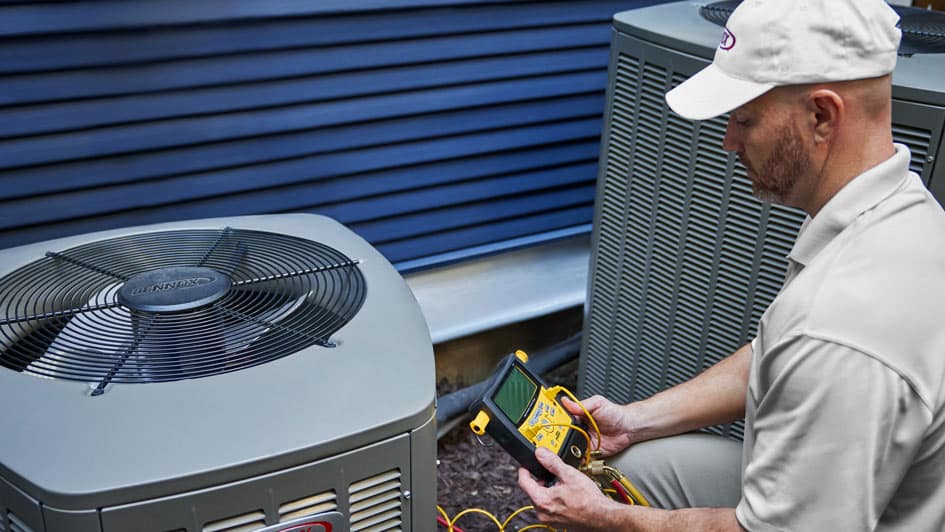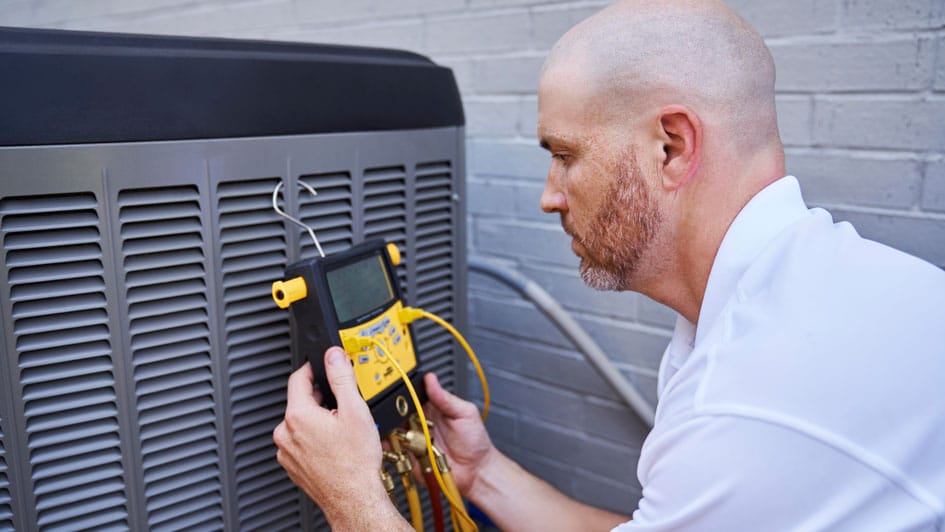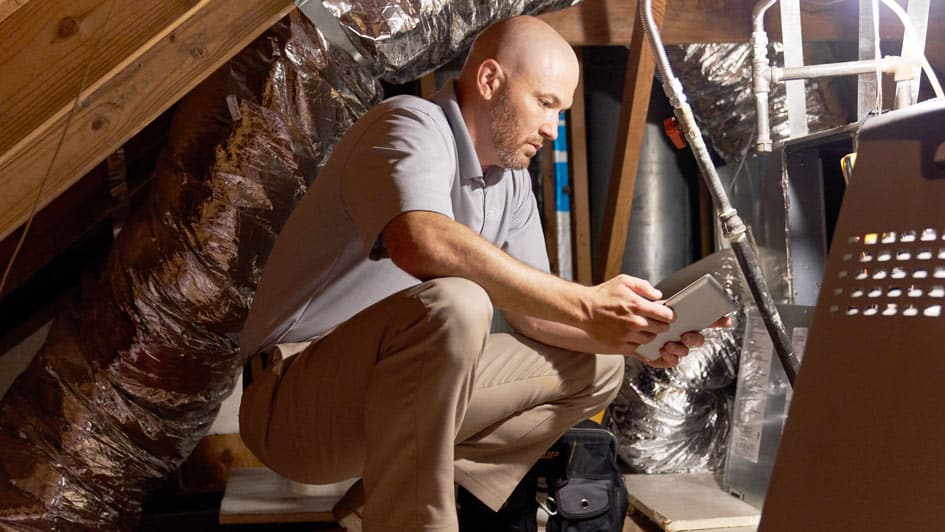
How Can I Tell if My Homes Air Quality is Bad?
If you’re unsure whether your Abilene residence has unhealthy indoor air quality (IAQ), it likely does.
We spend much of our time indoors. In fact, we’re indoors up to 90% of the time, according to the U.S. Environmental Protection Agency. And the air inside homes could be 2–5 times more polluted than outdoors, which might result in long-term health problems.
Most Common Sources of Poor IAQ
We’ve compiled a list of the most ordinary origins of inferior IAQ, the troubles they create and how you can remedy these indoor air pollutants. If you’re troubled by the air inside your home, we advise chatting with a expert like Abilene Air-Tech Inc about which solutions are ideal for your family.
Volatile Organic Compounds
Volatile organic compounds, or VOCs, are fumes leaked by regular household things.
They’re found in paint and stains along with:
- Furniture
- Carpet
- Building materials
- Cleaning products
- Cosmetics
- Air fresheners
- Candles
When these vapors accumulate in your home, they can irritate your eyes, nose and throat. They can also result in headaches and nausea. Regardless of whether your home is in a rural or industrial space, an EPA study found indoor levels of these pollutants can be 2–5 times higher than the air outdoors.
Always adhere to the manufacturer’s instructions when applying paint or spraying cleaning products. Unlatching a window can help vapors disappear more rapidly.
Air purification systems can also help. This system partners with your heating and cooling unit to clean indoor air. When looking for one, ensure it’s specifically made to eradicate VOCs.
Dust and Pet Dander
Dust and pet dander can aggravate health problems like asthma and allergies, especially when it continuously gets recirculated by your residence’s heating and cooling system. While you can vacuum more frequently and get an improved air filter, an air filtration system might be a better solution.
This equipment works with your comfort unit to provide strong filtration. Some types provide hospital-grade filtration for eliminating particles and bioaerosols.
Lingering Odors
New houses are tightly sealed to enhance energy efficiency. While this is great for your heating and cooling bill, it’s not ideal for your IAQ.
Musty odors can stay around longer because your house is taking in a smaller amount of fresh air. Since keeping your windows open all year round isn’t doable, here are two ways you can make your indoor air smell better.
An air purification system is placed in your ducts to neutralize odors before they are redistributed. Look for one with a carbon filter and the ability to break down damaging VOCs. These systems can also help keep your loved ones healthy by eliminating most bacteria and ordinary allergy triggers like pollen and mold spores.
A ventilation system pulls out stale indoor air and exchanges it with clean outdoor air. There are two types of units (heat recovery and energy recovery), so call our experts for more information on which type is right for your house.
Unbalanced Humidity
It’s critical your home’s humidity remains balanced. Air that’s too humid can cause mold, while dry air can lead to respiratory issues.
Our techs suggest 40–50% for the best comfort. To keep yours steady, consider installing a whole-home humidifier or whole-home dehumidifier with your heating and cooling unit.
Rather than having to drag a humidifier from room to room, this equipment delivers even humidity around your home.
Carbon Monoxide
Carbon monoxide is gas you can’t see or smell. It’s a byproduct of insufficient combustion in fuel-burning equipment, like gas heating systems, water heaters or fireplaces.
It creates an extreme health risk. In little concentrations, it can cause flu-like symptoms like headaches and nausea. It may be fatal in large concentrations.
We suggest regular furnace maintenance to make sure your unit is running like it should. This work allows our techs to discover issues before they start, including malfunctions that can cause carbon monoxide leaks.
The best way to keep your residence free of carbon monoxide is to get detectors. These alarms should be on every floor close to bedrooms and living rooms.
Improve Your Residence’s Air Quality with the Abilene Air-Tech Inc Pros
Informed that your home has bad air quality but not sure how to improve it? Or unsure which product is right for you? Give our friendly HVAC specialists a call at (325) 692-5850 or contact us online today. With free estimates and expert service, we’ll help you find the ideal solution for your family and budget.
Don't wait until your AC breaks down - get a professional maintenance check now.
Contact



